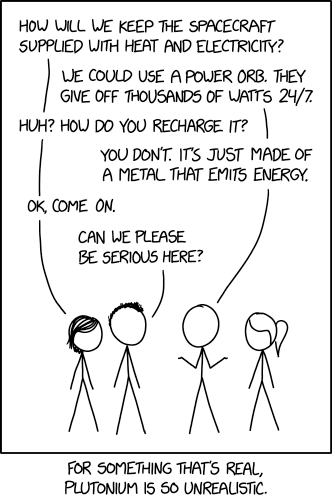Click here and press the right key for the next slide (or swipe left)
also ...
Press the left key to go backwards (or swipe right)
Press n to toggle whether notes are shown (or add '?notes' to the url before the #)
Press m or double tap to slide thumbnails (menu)
Press ? at any time to show the keyboard shortcuts
Clear and Distinct
How could the intellect alone enable us to know the essential nature of things?
‘I am certain that I am a thinking thing.
Do I not therefore also know what is required for my being certain about anything?
In this first item of knowledge there is simply a clear and distinct perception of what I am asserting; this would not be enough to make me certain of the truth of the matter if it could ever turn out that something which I perceived with such clarity and distinctness was false.’
‘I now seem to be able to lay it down as a general rule that
whatever I perceive clearly and distinctly is true’
(Meditation 3)
1. I clearly and distinctly perceive that I am a thinking thing.
2. This clear and distinct perception is enough for certainty.
3. Suppose not all clear and distinct perceptions were enough for certainty about what is perceived.
4. Then no clear and distinct perception would be enough for certainty.
5. But then my clear and distinct perception that I am thinking would not be enough for certainty.
6. Which it is.
7. So #3 leads to contradiction.
8. So all clear and distinct perceptions are enough for certainty.
How could the intellect alone enable us to know the essential nature of things?
‘I am certain that I am a thinking thing.
Do I not therefore also know what is required for my being certain about anything?
In this first item of knowledge there is simply a clear and distinct perception of what I am asserting; this would not be enough to make me certain of the truth of the matter if it could ever turn out that something which I perceived with such clarity and distinctness was false.’
‘I now seem to be able to lay it down as a general rule that
whatever I perceive clearly and distinctly is true’
(Meditation 3)
1. What are clear and distinct perceptions?
2. Why think perceptions which are not clear and distinct do not yield knowledge?
3. Why think clear and distinct perceptions do yield knowledge?
How could the intellect alone enable us to know the essential nature of things?
‘I am certain that I am a thinking thing.
Do I not therefore also know what is required for my being certain about anything?
In this first item of knowledge there is simply a clear and distinct perception of what I am asserting; this would not be enough to make me certain of the truth of the matter if it could ever turn out that something which I perceived with such clarity and distinctness was false.’
‘I now seem to be able to lay it down as a general rule that
whatever I perceive clearly and distinctly is true’
(Meditation 3)
Example: the wax
‘the perception I have of it is a case not of
vision or touch or imagination
... but of
purely mental scrutiny;
imperfect and confused
as it was before
clear and distinct
as it is now,
Option 1: ‘clear and distinct’ is a psychological property
Option 2: ‘clear and distinct’ is a lose way of talking about whatever underpins mathematical knowledge
1. What are clear and distinct perceptions?
Those involved in thinking mathematically.
2. Why think perceptions which are not clear and distinct do not yield knowledge?
Erm ... because only mathematics yields knowledge?
3. Why think clear and distinct perceptions do yield knowledge?
Because mathematics is possible.
Option 1: ‘clear and distinct’ is a psychological property
Option 2: ‘clear and distinct’ is a lose way of talking about whatever underpins mathematical knowledge
But Euclid’s fifth postulate (the ‘parallel postulate’) ...
... and the Axiom of Choice ...
... and ...
Option 1: ‘clear and distinct’ is a psychological property
Option 2: ‘clear and distinct’ is a lose way of talking about whatever underpins mathematical knowledge
Dilemma: is your perception of the parallel posulate clear and distinct?
If not, you can never know which perceptions are clear and distinct.
If it is, not all clear and distinct perceptions yield knowledge.
Option 1: ‘clear and distinct’ is a psychological property
Option 2: ‘clear and distinct’ is a lose way of talking about whatever underpins mathematical knowledge
But Euclid’s fifth postulate (the ‘parallel postulate’) ...
... and the Axiom of Choice ...
... and ...
‘What is meant by a clear perception, and by a distinct perception.
I call a perception 'clear' when it is present and accessible to the attentive mind - just as we say that we see something clearly when it is present to the eye's gaze and stimulates it with a sufficient degree of strength and accessibility.
I call a perception 'distinct' if, as well as being clear, it is so sharply separated from all other perceptions that it contains within itself only what is clear’
Descates (Principles of Philosophy)
1. What are clear and distinct perceptions?
2. Why think perceptions which are not clear and distinct do not yield knowledge?
3. Why think clear and distinct perceptions do yield knowledge?
puzzle

Hypothesis testing
1. Sensory perception alone cannot tell you which hypothesis is true.
2. Humans are disposed to accept many false hypotheses.
Therefore:
3. Your sensory perceptions and sense of what is plausible should not constrain which hypotheses you consider.
4. ... but observation (sensory perception) is essential for testing hypotheses.

xkcd.com/2115